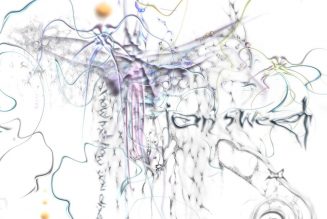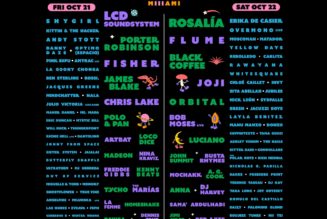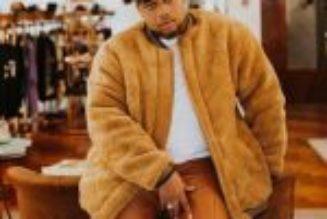Within a matter of months, the Sankofa Homeschool Collective will commemorate its 20th year of existence.
Since its inception in 2004, the small group of Black stay-at-home mothers who decided to homeschool their children has grown into a community with roots not only in the D.C. metropolitan region, but across the United States and on the African continent.
Sankofa Homeschool Collective co-founder Monica Utsey called her homeschool journey, and that of other parents in the collective, a testament to the power of community and self-determination in a society where children are often kept away from their parents for hours at a time.
“What we did was a bold move in unchartered territory that was motivated by deep love,” Utsey said.
“We had already done something out of the norm, which was being home with our children,” she added. “Some of us realized we enjoyed being with our children, educating them, and taking them to theaters, nature centers, and storytimes at libraries. We just wanted to continue that so we decided to formalize it as a community.”
Sankofa Ebbs and Flows Through COVID, Other Developments
During the week of Sept. 18, homeschool families will participate in another year of African-centered, culturally relevant instruction, courtesy of the Sankofa Homeschool Collective, which Utsey and others have described more as a community than an alternative school.
Early on in Sankofa Homeschool Collective’s existence, mothers and fathers of various political and religious backgrounds met at Deanwood Recreation Center in Northeast. That’s where dozens of children and parents, some of whom served as instructors, met weekly to immerse in studies about core academic subjects and more specialized areas of knowledge.
By 2015, the collective moved operations to Adinkra Cultural Arts Studio in Mt. Rainier, Maryland where African drumming became the newest part of a course selection that included Pan-African history, African-American literature, Swahili, narrative essay writing, cooking, art and quilting.
In 2019, many Sankofa students and their families traveled to Ghana to showcase their drumming skills during Year of Return activities that attracted legions of diasporic Africans to the West African country. Soon after, COVID-19 brought the world to a standstill and relegated the Sankofa Homeschool Collective to the virtual realm.
The shift to virtual instruction allowed Sankofa Homeschool Collective to expand program offerings and reach families outside of the D.C. metropolitan area who wouldn’t have been able to participate otherwise. This happened at a time when Black families across the U.S. were increasingly embracing alternatives to public and public charter schools.
As homeschooling moves beyond the margins of society, the Sankofa Homeschool Collective maintains its online presence and continues to offer enriching in-person and virtual activities for children and families.
This fall, parents have organized field trips to a self-defense class, a CPR class, a radio station tour, the Apollo Theatre in New York City, and the Audubon Speedway near Baltimore, among other places. Meanwhile, students between the ages of six and 10 years old get to learn literary devices and storytelling while exploring African myths and culture.
In another virtual class, students decolonize the various fields of science to develop a better understanding of their relationship with self and the environment. Alumni of the homeschool program have even returned as teachers, as has been the case with Zaire Muhammad and Adoniyah Ben-Tsalmiel who are teaching about chess and comic books, respectively.
Trishay Young, a homeschool mother in her first semester at Sankofa Homeschool Collective, will teach young people how to focus on their goals and keep calm amid chaos in their lives. She said her work with mothers and children in Tallahassee inspired this course, which she has taught at other homeschools in the U.S.
Over the past four years, Young, who’s known in her homeschool community as Mama Yata, has embraced homeschooling as a means of protecting her two children from what she described as an infringement on their innocence. Since embarking on that journey, she has exposed other Black parents in her city to the concept, going as far to connect them with Kamali Institute, Liberated Minds Black Homeschool & Education Institute and other homeschool groups.
Young said her class, titled “Principles of Problem Solving,” aims to prevent the perpetuation of intergenerational trauma that manifests itself in violent crime.
“I’m trying to do something different so we can have outstanding adults, and not children in adult bodies,” said Young, a resident of Tallahassee. “There’s an ability for me to have influence over my children versus what the system influences them with. I’m really big on conversation and dialogue, and the conversations that children are having now are more grown. I want my children to stay children as long as they can and keep their innocence without asking about adult matters.”
The Building Blocks of a Real-Time Global Exchange
Utsey, a travel coordinator for H.I.M. Tours in Ghana, alluded to eventually conducting summer camps on the African continent for homeschool families.
For the time being, students and families will continue to glean knowledge from instructors living on the continent, including natives of Benin and Nigeria who are teaching French and Yoruba, respectively.
In Accra, Ghana, music educator Raphael Yeboah has set plans in place to expose his Sankofa students to African folk songs and musical instruments, including aerophones, membranophones, idiophones and chordophones.
Through the tradition of oral artistry, these mediums have been used to pass down stories between generations in West African societies.
Yeboah said his class, titled “African Music: Introduction to African Instruments and Folk Songs,” reflects his experiences growing up around music in his community and later learning about the cultural significance as a university student. He told the Informer that music, and oral tradition in general, has served as a repository of knowledge about a nation’s cultural heritage.
That’s why students under Yeboah’s tutelage will learn about the instruments and even get a chance to play what are derogatorily referred to as primitive tools.
One instrument of note is the atenteben, also known as the bamboo flute, which the Akan people of Ghana use to call on ancestors during funeral-festivals. As he embarks on his first semester as a homeschool instructor, Yeboah said he looks forward to imparting cultural knowledge on young people and raising their consciousness about African traditions.
“Students have the opportunity to encounter educators from across the globe. That gives them room to experience people who are internationally minded from the comfort of their homes,” Yeboah said. “If we are to hope for a society of culturally literate people, then music should be part of our children’s education. This creates room and an opportunity for us to impart knowledge on the younger generations so that our cultural identity can stand the test of time.”










